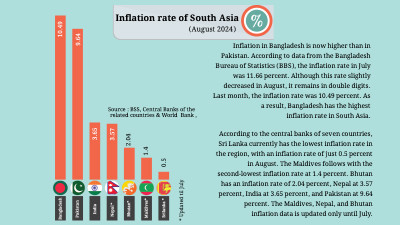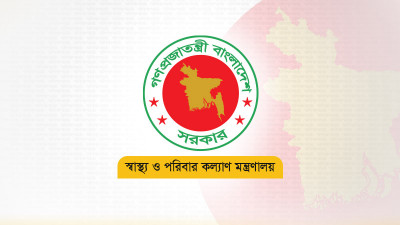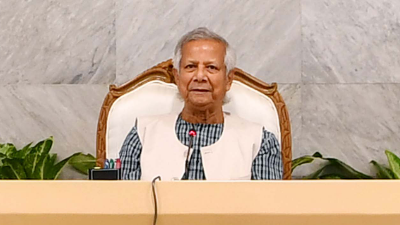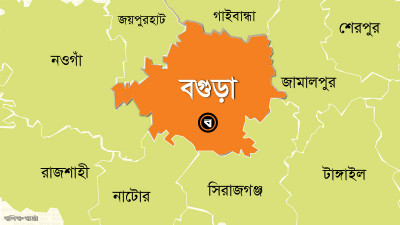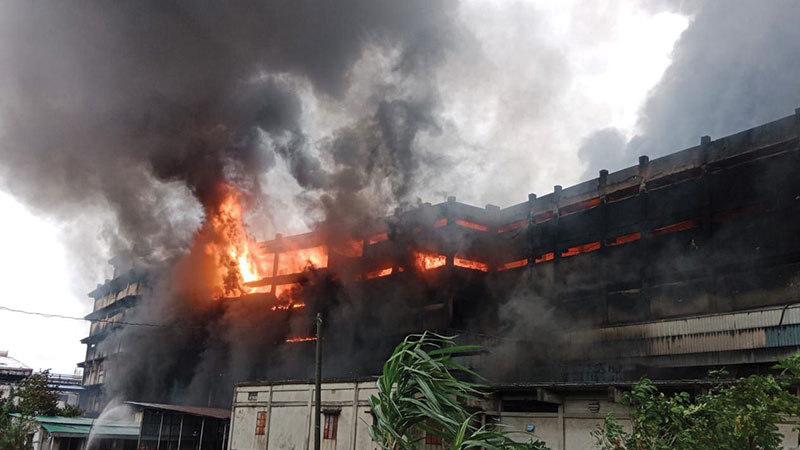 File Photo (Bonik Barta)
File Photo (Bonik Barta) Individuals and businesses affiliated with the Awami League were directly involved in various sectors of the country's economy. Following the fall of the Awami League government on August 5 amidst a student-people uprising, businesses connected to the party have plunged into severe crisis. Many fled the country in anticipation of the intense July-August protests and the impending government collapse, while some fled after the government's fall. Those top Awami League leaders who could not leave the country are now in hiding. As a result, the operations of businesses owned by Awami League leaders are now highly uncertain.
According to discussions with those involved, the
businesses affiliated with the Awami League have been hit hardest by the fall
of the AL government. Many of these businesses have faced attacks and extensive
looting, with some even shutting down. Numerous workers employed at these
establishments have become unemployed. Additionally, various banks have taken
loans in the name of these businesses. Disruptions in business activities will
negatively impact loan repayments, and the overall effect of these issues will
be felt in the country's economy.
In the most recent Dhaka North City Corporation (DNCC)
election, Md. Atiqul Islam was elected mayor under the AL's nomination. Despite
the fall of the government, he remained in the country. On August 18, he
visited the DNCC office, and news of his presence spread. Subsequently, he fled
from the North City Corporation building to avoid public outrage. Since then,
he has been in hiding. Due to his absence, the future of the businesses owned
by this former president of the BGMEA is now at risk.
In 1985, Atiqul Islam began his business in the garment
sector, establishing the Islam Group. According to the latest
affidavit from the Dhaka North City Corporation election, Atiqul owns 16
businesses, including his garment factories. These businesses are:
1. Islam Garments Limited
2. Islam Products Limited
3. Islam Dresses Limited
4. Islam Knit Designs Limited
5. The Silver Garments Limited
6. Power Tex Fashions Limited
7. Time Designs Limited
8. Struggling Rins Effects Limited
9. Euro Jeans Limited
10. Plaza Living Developers Limited
11. Eco-Tex Dyeing and Weaving Factory Limited
12. Islam Software Solutions Limited
13. Ajwa Limited
14. Armor Bangladesh Limited
15. A G Salary Limited
16. The Rose Dresses Limited
A top official of Islam Group of Industries, speaking on condition of anonymity, told Bonik Barta, "Our company's head is directly involved in AL politics, which has put our businesses at risk. The future of our thousands of workers is uncertain. We have no idea when things will get back to normal."
After the fall of Sheikh Hasina’s government, repeated
incidents of looting and arson have occurred at Gazi Tyres' factory in Rupganj,
Narayanganj. The company's owner is former Jute and Textile Minister Golam
Dastagir Gazi. Most recently, on August 25, miscreants set the factory on fire.
Before and following this incident, the factory experienced extensive looting.
The warehouse that stored raw materials was utterly destroyed.
Regarding the damage caused by the fire, Brigadier General (Ret.) Mohammad Kamruzzaman, the Executive Director (Administration) of Gazi Tyres, told Bonik Barta, "After the government fell, the factory has been repeatedly set on fire and looted. Large machines from the factory have been stolen in a short period. This is a planned crime—moreover, the burned building contained all the chemicals, raw rubber, and sulfur. The damage amounts to over BDT a thousand crore. Approximately 2,500 officials and workers were employed at this factory. If the damaged factory is not reopened soon, the workers will become unemployed."
Another company official, speaking on condition of anonymity, said, "Our factory has been looted several times. It was set on fire twice. However, after the most recent fire on August 25, all the workers became unemployed. Salaries for July have been paid, but August’s salaries are still pending."
SM Mannan Kochi is the General Secretary of Dhaka North
City BAL. He was elected President of the BGMEA (Bangladesh Garment
Manufacturers and Exporters Association) for the 2024-26 term. Before the
government fell, he traveled to Singapore for family reasons. Since the fall of
the AL government, he has not returned to the country. In the meantime, he has
become a defendant in several cases.
SM Mannan Kochi is the Managing Director of the garment
company Seha Design (BD) Limited. Since the government’s fall, the company has
been at risk. A responsible officer stated, “The company is still operational.
However, we cannot predict what the future holds for the company.”
The company’s manager, Zafar Ahmed, claimed that the
company was running smoothly. He told Bonik Barta, “The company is functioning
well. There are no problems. I will not say more than that. If you want to
discuss this in detail, you will need to come to the office and speak with the
appropriate authorities.”
Shafiul Islam Mohiuddin, a former president of the
Federation of Bangladesh Chambers of Commerce and Industries (FBCCI), has been
involved in the garment business since 1992. He entered the industry through
the establishment of Owners Apparel Limited and later founded a garment company
under the name Pushpo Group. He has expanded his business into various sectors,
including garment accessories, real estate, shipping, fishing, trawling,
dredging, solar energy, auto bricks, and handicrafts. He also served as a
director on the Trustee Board of the BGMEA University of Fashion and Technology
(BUFT), Vice President of the Society for Anti-Addiction Movement (SAM), and a
director at the Center of Excellence for Bangladesh Apparel Industry (CEBAI)
and BGMEA Apparel Club. After the Awami League government's fall, some
businesspeople protested against Shafiul Islam Mohiuddin's various activities.
He is also missing, and efforts to contact him have been unsuccessful.
Meanwhile, businesspeople affiliated with the Awami
League also dominated the construction sector. Industry insiders say that,
given the country's overall situation, buyers are not demanding materials such
as rods, sand, and cement. Over the past fifteen years, the Awami League has
presented infrastructure development as a critical indicator of national
progress. However, industries and factories established through significant
investment face major crises in their absence.
In the past, consumer demand for rods accounted for
nearly 60 percent of total production in the country. In recent years, consumer
demand has decreased, with about 60 percent of the market coming from large
infrastructure projects, government and private sector projects, and
contracting work. However, under the current circumstances, demand for rods has
significantly declined at both levels. This decline is primarily due to the
nearing completion of government megaprojects, slow progress on new projects,
and the lack of fund allocation for various government construction works.
Additionally, theft, looting, and other concerns have decreased rod and cement
purchases by general consumers.
A top official from a prominent steel manufacturing
company, speaking on condition of anonymity, told Bonik Barta, "Due to the
political changes in the country, many people from both government and private
sectors, including the AL, are in hiding. Many of them were involved in
contracting businesses. They are abandoning those plans if they are considering
building houses or infrastructure. Additionally, ongoing infrastructure
projects are facing issues such as theft and looting of materials. There have
even been incidents of robbery involving transport carrying rods and cement. As
a result, the demand for products like rods has drastically decreased."
According to sources from the top steel manufacturing
company BSRM Group, their annual rod production target is approximately 1.8
million tons. However, only two out of the four modules at BSRM's melting unit
in Mirsharai are currently operational. Production has been maintained in the
small rod production factories in the Nasirabad area of Chattogram city by
reducing shifts. Nevertheless, the company plans to reduce the quantity of
goods produced.
When asked, Mohammad Sarwar Alam, Director of HM Steel
and Industry Limited, told Bonik Barta, "The steel industry in the country
has been under a downturn since October last year. The situation was expected
to improve after the elections. However, we have faced some difficulties
following the political changes triggered by student protests. Reducing
production at steel mills means increased production costs. Despite this, many
have kept production levels steady in hopes of a market recovery. As a result,
many factories and warehouses have accumulated large stocks of rods."
Industry insiders say that the price of rods has suddenly
dropped due to the decrease in demand. Previously, rods were sold at BDT
96,000-97,000 per ton, but now the price stands at BDT 91,000-92,000 per ton.
The same situation is observed in the cement sector. The
country's annual demand for cement was between 30 to 40 million tons. However,
due to recent political and economic instability, cement demand has decreased
by 20-30 people.
Zahir Uddin Ahmed, Managing Director of Confidence Cement
PLC Limited, told Bonik Barta, "The market for products like cement relies
on political stability. For almost a year, Bangladesh has lacked political
stability. Now, with people living in uncertainty, infrastructure construction
has virtually stopped. Moreover, all cement customers are either government projects
or state-owned enterprises. Mega projects, particularly those at the government
level, have high usage of rods and cement. The implementation rate of these
projects has decreased, impacting the cement sector."
Several officials from steel manufacturing companies in
Chattogram informed Bonik Barta that recently, there have been incidents of
theft from multiple transports carrying rods and attacks on transport workers.
As a result, workers have staged a two-day strike.
Badiul Alam Majumdar, Secretary of Citizens for Good
Governance (SHUJON), told Bonik Barta, "The uprising of students and the
public has opened a door of possibilities. If everyone does not act
responsibly, this door may be closed. Unfortunately, in their exuberance, some
individuals have engaged in actions that could block this potential
opportunity. Therefore, everyone must act responsibly."

